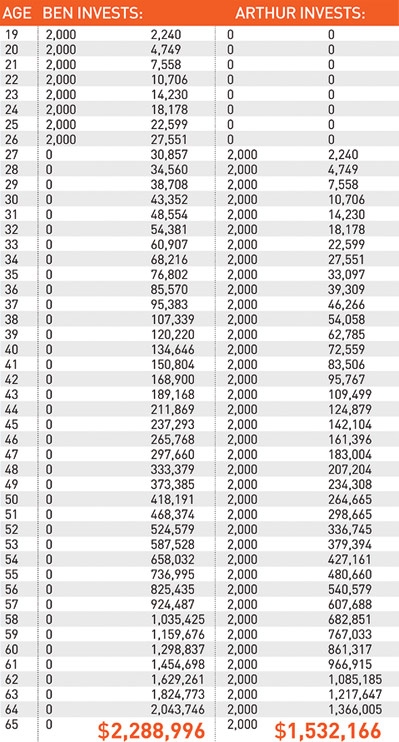alfadriver said:
In reply to mtn :
Thinking about it more- can I suggest a change in your model?
Assume a 2.1 % inflation rate (which is the average over the last 27 years). And then assume a 1.4% raise ever year above that- so the raise is actually 3.5% (starting salary $50k, salary in 2046 would be $122.3k).
Keep the savings rates the same- both in terms of 15% to 37% over the same time period.
The ending salary of that period looks realistic, the increase in take home pay over the same time also looks realistic (keeps up with inflation).
If people's raises are less than 2.1%, your salary isn't keeping up with inflation.... Which is an important think to know, too- perhaps it's time to change jobs.
Hey, you have to keep it simple because there are simply too many variables here that you could account for.
I used a 7% return, which is what the Total Stock Market index has averaged after inflation for the past 80 something years. If i then use your 1.4% raise (after inflation), and again a 1% savings increase each year, you're still at 31 years to become a millionaire. Using your logic, it should happen sooner--your return is actually better than 7% before inflation, and your salary increases are likely more than the 1.4%. So you'll get to that $1M mark sooner, but it means less.
As for "try to live a little better 27 years after you started" (from your earlier post), well, the 2-4% raises that I've had over my career were nice, but the 50%, 13%, and then 26% raises that I got by changing jobs were required. For the current generation, you should expect to jump ship a few times in your career, otherwise you won't be likely to end up with significant salary increases.
Fun stuff, I started out of college making $15 an hour. I was able to save about 50% of my salary back then, because I was still on my parents health insurance and had roommates. That 401k from that first job (which had a few promotions and raises in there, but was only 2.5 years with the company) is now worth close to 1x my current salary. Save EARLY.































